Education
The Heart of the Forest: Randy Flament Capturing the Elusiveness of Eastern Golden Eagles
Nestled within the wilderness of Cameron County, Pennsylvania, a dedicated conservationist and photographer has spent years advocating for one of North America’s most elusive raptors—the Eastern Golden Eagle. Randy Flament, originally from Monongahela, Pennsylvania, found his calling in the forests of the Lumber Heritage Region, where his passion for wildlife, photography, and conservation has made a lasting impact. A Life Rooted in Nature Flament’s journey into conservation and bird advocacy began with his love for the Pennsylvania wilderness. Moving to Cameron County at the age of 20, he worked for Mallery Lumber (now Emporium Hardwoods) while immersing himself in the experiences of the region’s rich natural beauty. His initial fascination with elk photography became a gateway to photographing a wide variety of wildlife, particularly birds of prey. Visits to the Allegheny Front Hawkwatch with his parents introduced him to a network of raptor enthusiasts and researchers, sparking his deep interest in the Eastern Golden Eagle. The Eastern Golden Eagle Unlike the better-known Golden Eagles of the western U.S., the Eastern Golden Eagle remained largely unstudied before the early 2000s. These powerful birds, boasting an impressive nearly 8-foot wingspan, rely on the updrafts created by Pennsylvania’s Appalachian and Allegheny Ridges to aid in their migration. These same winds have guided them for thousands of years from their northern breeding grounds in Quebec, Canada, down through the heavily forested landscapes of Pennsylvania and even as far south as Alabama. Each year, Eastern Golden Eagles embark on a remarkable migration from their breeding grounds in northeastern Canada, including regions like Quebec and Labrador, to escape the harsh northern winters. They journey southward along the Appalachian Mountains, seeking milder climates and reliable food sources. Pennsylvania's forested ridges provide essential habitats during these winter months, offering both sustenance and shelter. However, their true home lies in the remote northern wilderness, where they nest on rugged cliffs and towering trees, raising their young in the vast boreal forests. During the summer months they hunt, relying on their keen eyesight and powerful flight to survive in one of North America's most challenging environments. While their western counterparts feed almost exclusively on mammals, Eastern Golden Eagles tend to feed more heavily on avian prey like waterfowl. Once autumn arrives, these resilient raptors begin their long journey south once again, following the same ancient pathways their ancestors have used for centuries. Advancing Research and Conservation Today, thanks to projects like the Appalachian Golden Eagle Project, researchers have gained critical insight into the migration patterns and behaviors of these magnificent birds. Flament has contributed to this effort, volunteering his time, property, and photographic expertise to aid scientific studies. His images have contributed to conservation plans, including those of the Eastern Golden Eagle Working Group (EGEWG). The research on Eastern Golden Eagles has helped inform land-use decisions, particularly regarding the placement of wind turbines. As renewable energy projects expand, researchers use extensive tracking data to provide detailed information to land stewards. The goal is to ensure that wind farms are strategically placed to minimize interference with crucial migratory routes. Tracking Eagles: Cutting-Edge Research and Data Collection A deeper understanding of Eastern Golden Eagles has been made possible through innovative research led by experts such as Dr. Todd Katzner and Dr. Trish Miller. These researchers, along with a dedicated team of conservationists, have utilized advanced telemetry tracking to monitor eagle migration patterns. Golden Eagles are fitted with GPS transmitters, which relay data via cell towers. These transmitters provide extensive information on flight altitude, speed, and location, allowing scientists to study the eagles’ movements with remarkable accuracy. The data not only helps pinpoint migration corridors but also identifies key stopover sites—temporary resting and feeding areas essential for their survival. By leveraging this technology, researchers can advocate for habitat conservation, influence policy, and mitigate risks posed by human activities, including wind energy development. Addressing Lead Poisoning: A Silent Threat One of the greatest threats to Golden Eagles and other raptors is lead poisoning. These birds often scavenge remains left by hunters, including gut piles from field-dressed deer, unknowingly ingesting toxic fragments from lead-based ammunition. Even a lead particle the size of a grain of rice can be fatal to a Golden Eagle. Conservationists, including Flament, advocate for the use of copper ammunition as a safer alternative, aiming to protect not just eagles but the entire ecosystem. The Power of Citizen Science Flament encourages others to get involved in conservation through citizen science initiatives. Whether through bird counts, data collection, or simply fostering awareness, he believes that everyday people play a crucial role in protecting wildlife. He emphasizes that the health of the environment reflects human well-being, and that preserving nature is a responsibility we owe to future generations. To find a Hawk Watch site, visit https://hawkcount.org/sitesel.php A Lasting Legacy For Flament, conservation is about more than just studying wildlife—it’s about understanding humanity’s place in the natural world. Through his advocacy, photography, and dedication to the Eastern Golden Eagle, he continues to inspire others to appreciate and protect the delicate balance of nature. The work of Flament and other conservationists highlights the intricate connections between land, wildlife, and humanity.
Read More…


